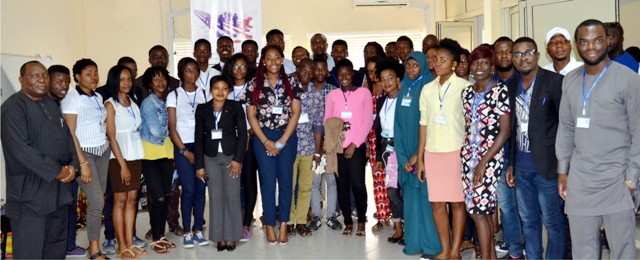Business
Free Zone Authority Assures On Efficient Service Delivery

In a bid to achieve the objectives of the, Ease of Doing Business Initiative (EDBI), an economic policy of the Federal Government, the management of the Oil and Gas Free Zone Authority (OGFZA), Onne, says it has developed a roadmap towards achieving efficient service delivery.
The Managing Director of the Authority, Umana Okon Umana, disclosed this during a stakeholders forum jointly hosted by the Oil and Gas Free Zone Authority and the Nigeria Customs Service in Onne in Eleme Local Government Area last week.
The managing director, said the Free Zone Authority has made reasonable progress in the implementation of the roadmap, which was first launched at an enlarged stakeholders summit last February.
He called on all government agencies, to imbibe the policy of efficient service delivery to promote economic growth in the country.
He pointed out that the challenges of high cost of doing business in the Free Zone, was of paramount concern to the management, “we have engaged all the stakeholders in this regard, including developers of the free zone and the OICs, all of which have agreed that the tarrifs are high and must come down. In this regard, the Authority in line with the extant law and regulations will soon be issuing a new schedule of tarrifs which would be applicable in the free zone”, he stated.
The managing director further disclosed that, in line with the commitment made in the roadmap, the management of the authority has commenced the full automation of its processes with the development of the “Oracle Cloud” application for all aspects of its operations.
He emphasised the need for compliance with standard operating process to enhance transparency, accountability and efficiency, adding that staff training was ongoing to cope with the new trend of operations.
Cognisance of the importance of this, he said the authority has deployed resources to upgrade its website into a robust and highly interactive portal for timely dissemination of information about the free zone.
Umana explained that the modest efforts made to reposition the free zone for higher efficiency and greater productivity have greatly impacted Nigeria’s export trade.
He commended the Nigeria Customs Service for the summit and assured the commitment of the Free Zone Authority to provide the enabling environment to attract foreign direct investments, create jobs and increase government revenues.
He however, regretted the logistic challenges faced by the numerous clients of the authority and other stakeholders in moving in and out of the free zone in Onne as a result of the bad condition of a section of the East-West Road.
He said the attention of relevant agencies of government has been drawn to the bad road to ameliorate the plight of the road users.
Taneh Beemene
Business
Ban On Satchet Alcoholic Drinks: FG To Loss N2trillion, says FOBTOB

Business
Estate Developer Harps On Real Estate investment

Business
FG Reaffirms Nigeria-First Policy To Boost Local Industry, Expand Non-oil Exports




